Sometimes it happens that such ailments as: weakness, fatigue, sleepiness, susceptibility to colds, skin changes, digestive disorders, are not associated at all with deficiencies of specific nutrients. Meanwhile, they are often the result of hypovitaminosis, i.e. insufficient amount of vitamins in the body.
Table of contents
Vitamin B deficiency – how to recognize it and how to combat it?
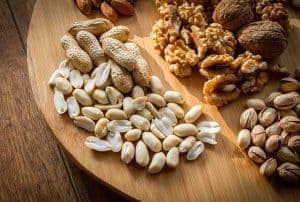 In most cases, the symptoms of hypovitaminosis do not occur suddenly and with great intensity, and are therefore not immediately linked to a lack of vitamins. This is the case with B vitamins, responsible for the proper functioning of the nervous system and mental health, as well as for good skin condition, eyesight and immunity. However, sleep and concentration disorders, irritability or apathy, problems with the digestive system, dermatological changes or hair loss should be a serious warning sign.
In most cases, the symptoms of hypovitaminosis do not occur suddenly and with great intensity, and are therefore not immediately linked to a lack of vitamins. This is the case with B vitamins, responsible for the proper functioning of the nervous system and mental health, as well as for good skin condition, eyesight and immunity. However, sleep and concentration disorders, irritability or apathy, problems with the digestive system, dermatological changes or hair loss should be a serious warning sign.
The B vitamins have very important functions in relation to individual organs and vital functions. To correct B vitamin deficiency, we should eat foods such as liver, spinach, oatmeal, bran, fish, poultry, soybeans, beans, nuts and seeds, dairy products, and eggs.
Vitamin A deficiency – symptoms and control
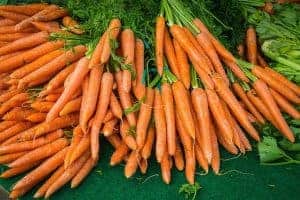 As with other vitamins, vitamin A deficiency is most often the result of an inadequate diet, that is, foods poor in this particular nutrient. Vitamin A is responsible for normal vision, good condition of mucous membranes and immunity; moreover, it influences the functioning of growth hormone and prevents thyroid diseases. Too low an intake of vitamin A may cause the so called “chicken blindness”, problems with skin, nails, hair, drying out of mucous membranes, weakened immunity, stunted growth, and even reproductive cycle disorders.
As with other vitamins, vitamin A deficiency is most often the result of an inadequate diet, that is, foods poor in this particular nutrient. Vitamin A is responsible for normal vision, good condition of mucous membranes and immunity; moreover, it influences the functioning of growth hormone and prevents thyroid diseases. Too low an intake of vitamin A may cause the so called “chicken blindness”, problems with skin, nails, hair, drying out of mucous membranes, weakened immunity, stunted growth, and even reproductive cycle disorders.
Both animal and plant products are sources of vitamin A. Found in animal products is called retinol, and in plant products beta-carotene. Vitamin A is found primarily in fish and fatty fish, offal, eggs, dairy products, and plant foods such as spinach, kale, tomatoes, carrots, red peppers, lettuce, pumpkin, cherries, plums, and peaches.
Vitamin E deficiency – how to deal with it?
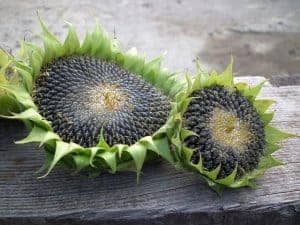 Called the vitamin of youth, vitamin E is a powerful antioxidant that fights free radicals, which significantly delays the ageing process. In addition, it prevents oxidation of fatty acids, thus preventing the formation of atherosclerotic plaques and plays an important role in the proper functioning of the circulatory system. Its deficiency may cause disturbances of metabolism and work of many other organs and systems, problems with coordination and concentration, deterioration of eyesight, immunity, and premature aging.
Called the vitamin of youth, vitamin E is a powerful antioxidant that fights free radicals, which significantly delays the ageing process. In addition, it prevents oxidation of fatty acids, thus preventing the formation of atherosclerotic plaques and plays an important role in the proper functioning of the circulatory system. Its deficiency may cause disturbances of metabolism and work of many other organs and systems, problems with coordination and concentration, deterioration of eyesight, immunity, and premature aging.
In order to cope with unfavourable symptoms, it is worth reaching for: vegetable oils, wheat germ, whole grain products, almonds, hazelnuts, sunflower seeds, eggs, milk, green vegetables, also vegetable butter and margarines.
Vitamin K deficiency – main symptoms and control
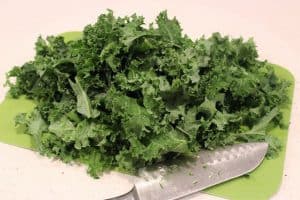 Vitamin K deficiency, like vitamin E deficiency, is rather rare, its cause is usually fat malabsorption or other gastrointestinal disorders, as well as long-term intake of antibiotics or some weight loss diets. Vitamin K plays an important role in blood-forming processes and calcium metabolism. The effects of its deficiency include impaired blood clotting and bone mineralization, and an increased risk of cancer, diarrhea, and inflammatory bowel disease.
Vitamin K deficiency, like vitamin E deficiency, is rather rare, its cause is usually fat malabsorption or other gastrointestinal disorders, as well as long-term intake of antibiotics or some weight loss diets. Vitamin K plays an important role in blood-forming processes and calcium metabolism. The effects of its deficiency include impaired blood clotting and bone mineralization, and an increased risk of cancer, diarrhea, and inflammatory bowel disease.
Rich source of vitamin K are mainly leafy vegetables – lettuce, cabbage, kale, spinach, watercress, beetroot, but also broccoli, cauliflower, turnip, green beans. Small amounts are contained in liver, green tea, milk and its products, carrots, potatoes, tomatoes.
Vitamin C deficiency – symptoms and control
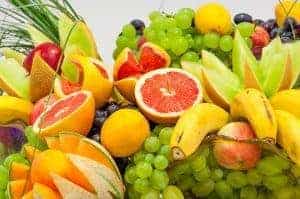 Vitamin C, or ascorbic acid, is undoubtedly one of the most important components necessary for the proper functioning of the body. It is difficult to overestimate its importance, because it is responsible for a number of processes, such as sealing blood vessels, lowering blood pressure and cholesterol levels, regulating collagen production, protecting against toxins and free radicals, strengthening immunity and many others.
Vitamin C, or ascorbic acid, is undoubtedly one of the most important components necessary for the proper functioning of the body. It is difficult to overestimate its importance, because it is responsible for a number of processes, such as sealing blood vessels, lowering blood pressure and cholesterol levels, regulating collagen production, protecting against toxins and free radicals, strengthening immunity and many others.
The most obvious symptoms of vitamin C deficiency are cracked blood vessels, weakness and fatigue, decreased immunity, joint and muscle pain, dry skin, and gingivitis. Natural vitamin C can be found primarily in fruits and vegetables, the largest amounts contain: black currant and acerola, citrus fruits such as grapefruit, red pepper, parsley, blackberries, raspberries, strawberries, spinach, broccoli, asparagus. Horseradish has a very high content of this substance, it is also in green peas, apples, tomatoes.

